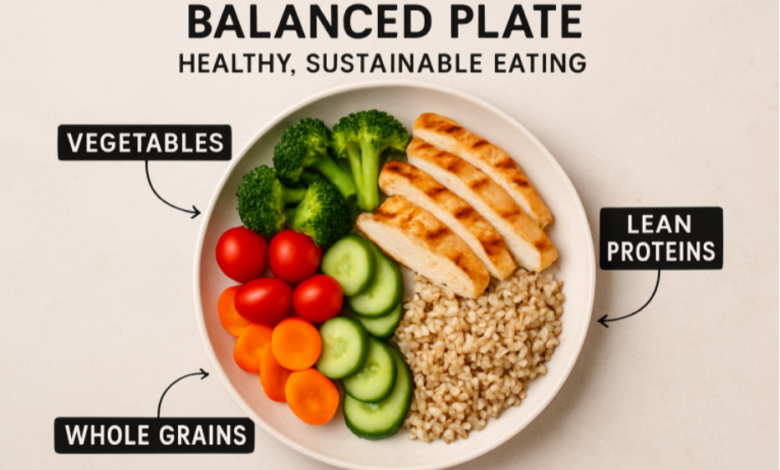Best Practices for Sustainable Weight Loss

Key Takeaways
- Choose nutrient-rich, whole foods that satisfy and support your health.
- Adopt mindful eating to gain true awareness of hunger and fullness.
- Integrate regular physical activity into your weekly routine.
- Get sufficient sleep to foster metabolic recovery.
- Utilize stress-management techniques to avoid emotional eating.
Achieving and sustaining a healthy weight is more than a short-term challenge—it’s a lifestyle shift that centers around gradual, lasting changes. Many individuals set out on their weight loss journey with determination, but without the right guidance and support, it’s easy to fall into the trap of unsustainable diets and quick fixes. For those seeking a guided and personalized approach, a reputable weight loss clinic Tampa, FL, can offer tailored support and proven strategies to help achieve realistic goals. Prioritizing long-term wellness ensures changes lead to ongoing health and vitality, not just weight loss. Sustainable weight loss relies on habits such as nourishing your body, staying active, getting enough rest, managing stress, and having a support system. Quick fixes often grab headlines, but evidence suggests that true progress comes from holistic, mindful living. These practices enhance quality of life, not just waistline.
Prioritize Nutrient-Dense Foods
The foundation of a sustainable weight loss plan is rooted in meal choices, emphasizing nutrient-dense foods. These foods are rich in vitamins, minerals, and fiber, which contribute to feelings of fullness and overall well-being. Emphasis should be placed on whole grains, colorful fruits and vegetables, lean meats, seafood, legumes, nuts, seeds, and healthy oils. Key benefits of nutrient-dense choices include improved energy and reduced cravings for processed foods, steadier blood sugar levels that support stable moods and appetite, and greater satiety, which aids in portion control. By focusing on these foods, individuals can promote weight loss while reducing their risk of chronic diseases.
Practice Mindful Eating
Mindful eating promotes awareness and presence during meals, encouraging individuals to pay attention to their body’s cues and differentiate between genuine hunger and habitual snacking driven by boredom or stress. Key practices include taking the time to chew each bite, minimizing distractions such as phones and television, and regularly assessing one’s fullness before, during, and after eating. By integrating these habits, individuals can enhance meal satisfaction, avoid overeating, and better align with their dietary goals.
Incorporate Regular Exercise
Physical activity is essential for weight loss and maintenance, comprising cardiovascular exercises like walking, swimming, or biking, which burn calories, and resistance training that builds lean muscle, thereby increasing metabolism. It is recommended to engage in a minimum of 150 minutes of moderate-intensity activity weekly alongside two sessions of muscle-strengthening exercises. To stay active, it is suggested to choose enjoyable activities to maintain interest, incorporate movement into daily routines (such as taking stairs or walking after meals), and track progress for motivation and visible outcomes.
Ensure Adequate Sleep
Neglecting sleep complicates weight management, as inadequate rest disrupts the critical hormones leptin and ghrelin, which regulate feelings of hunger and fullness. This often leads to increased appetite and cravings for calorie-dense foods. For optimal health, adults are encouraged to aim for 7 to 9 hours of uninterrupted sleep each night. To promote better sleep, creating a calming bedtime routine is beneficial. It is advisable to avoid caffeine and screens for at least one hour before bedtime. Additionally, maintaining consistent sleep and wake times, even on weekends, is recommended to reinforce healthy sleep patterns.
Manage Stress Effectively
Stress not only affects your mood, but it also impacts eating patterns and your body’s storage of fat. Chronic stress may trigger emotional eating, making it crucial to develop stress-management tools. Techniques such as deep breathing, progressive muscle relaxation, meditation, and journaling are excellent ways to lower stress and prevent unplanned eating.
Read Also: Mastering Medical Billing Workflows A Complete Guide for Healthcare Practices
Stay Hydrated
Drinking water is a simple yet often-overlooked factor in weight loss. Hydration aids digestion, supports metabolism, and can help moderate appetite. Many people mistake thirst for hunger, leading to unnecessary snacking. Aim for at least eight glasses of water daily, and consider starting each meal with a glass to help with portion control.
Set Realistic Goals
Unrealistic expectations can undermine motivation, so it is essential to prioritize steady, gradual changes, like losing 1 to 2 pounds per week. Establishing short-term milestones can enhance the feeling of achievement and maintain long-term commitment. Additionally, tracking successes beyond weight measurements, such as enhanced fitness or healthier lifestyle choices, is beneficial. Employing a journal or an app can help document progress and celebrate consistent efforts.
Build a Support System
Accountability and encouragement from others can keep you focused and inspired. Consider partnering with a friend or joining a group with similar aims. Sharing your journey with trusted loved ones or online communities can provide advice, reassurance, and fresh motivation when challenges arise. Lasting weight loss stems from a holistic approach, encompassing healthy eating, regular physical activity, adequate rest, stress relief, clear goals, and supportive relationships. Combining these boosts your chances of creating a sustainable, healthy lifestyle.
Conclusion
Achieving lasting weight loss is not about drastic measures, but about building a balanced and sustainable lifestyle. By prioritizing nutrient-dense foods, staying active, managing sleep and stress, and setting realistic goals, you create a foundation that supports both your health and well-being. With consistency, mindful choices, and the support of others, these habits become second nature—leading not just to weight loss, but to long-term vitality and confidence.




